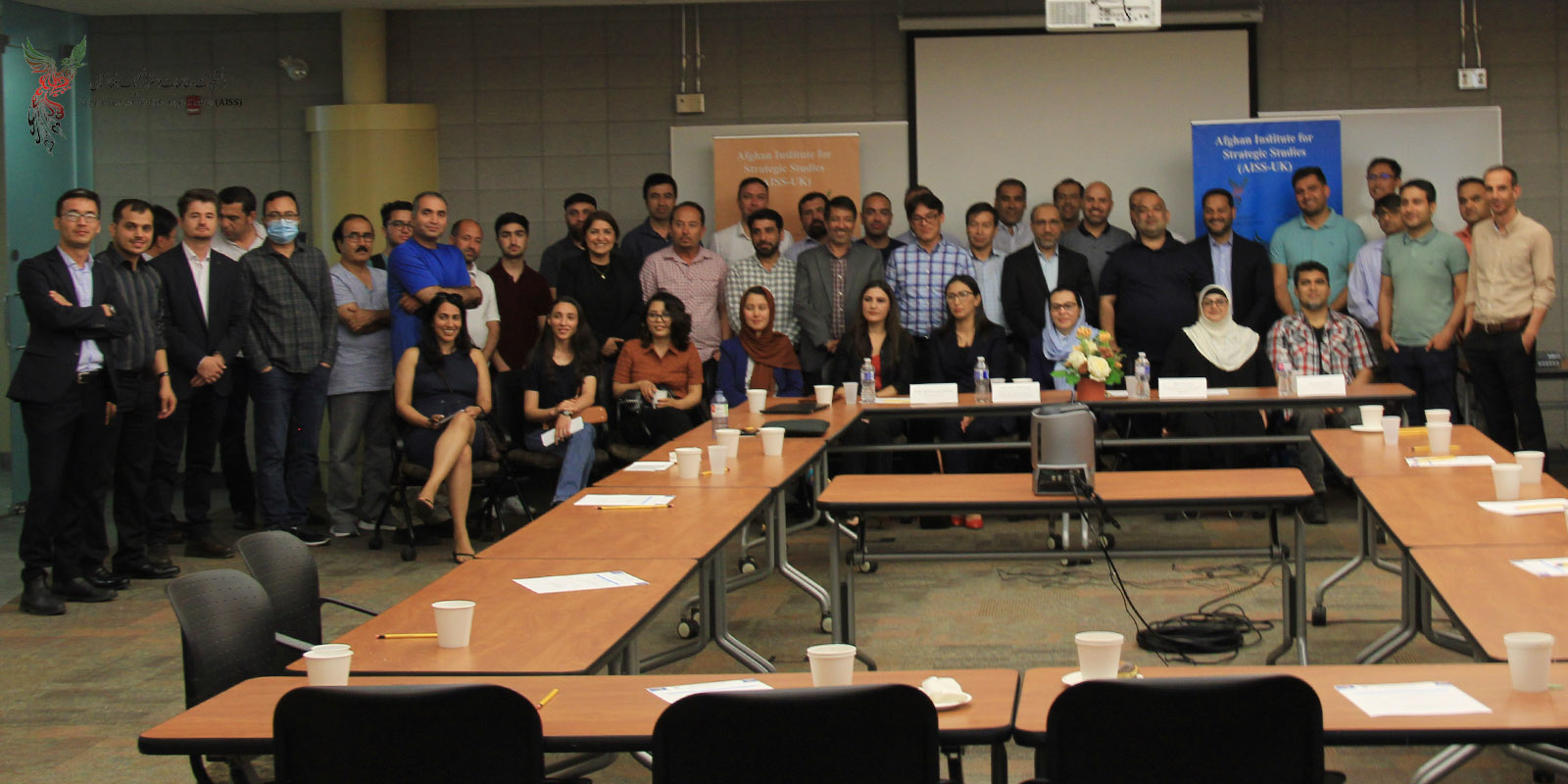Roundtable Discussion: Afghanistan Betrayal; Redeeming Framework
August 19, 2022
August 15, 2021 represents a national tragedy for many Afghans, an inglorious event for the US and its Western allies, a turning point for regional stability and global security and a victorious date for global militant Islamists. The Afghan Institute for Strategic Studies (AISS) held an in-person public discussion (two working panels) titled “Afghanistan Betrayal; Redeeming Framework” to bring together different perspectives on “human” and “policy” dimensions of Taliban’s occupation of Afghanistan at Mount Royal University, Calgary Canada on Friday, August 19, 2022.
Panel I: was about “Afghanistan’s Black August: Politicide; Betrayal; Survival; Soldarity” with Bilal Sarwary, Journalist and Independent Scholar, Sanjar Suhail, Founder and Publisher, Hasht Subh Daily and Tenzin Palkyi, Director of Emergency Response Team, National Endowment for Democracy (NED). The panel was moderated by Ejaz Ahmad Malikzada, AISS/NED fellow. Panelists reflected on the impact of August 15,2021 on their individual and organizational experience, particularly the human cost and also human solidarity, the way they cope with the sudden displacement and dispossession, and their organizational efforts to respond to such an unprecedented humanitarian situation. Panelists also discussed the success and quality of responses by different organizations, e.g., the UN, the US/Canada/EU governments, International NGOs, Media, and Afghan Diaspora. They also discussed the question “Should there be any attempt to hold to account those who designed and implemented US’ disastrous withdrawal from Afghanistan”.
To watch the full discussion please click here:
First part Panel I: https://fb.watch/f1C-Y_udtw/
Second part Panel I: https://fb.watch/f1D7rX5xR5/
Panel II was about “Black Security Hole; Humanitarian Catastrophe; Gender Apartheid, Resistance; Salvation’ With Maryam Safi, founder and Director of Organization for Policy Research and Development Studies (DROPs), Amb. Mohammad Moheq, AISS Research Fellow, and Shuvaloy Majumdar, founder and head of the Foreign Policy and National Security Program at Canada’s Macdonald Laurier Institute. The panel was moderated by Masooma Erfan, Researcher at IOM. Speakers focused on four critical areas: deepening humanitarian crisis; Taliban’s institutionalization of world’s first gender-apartheid regime; emergence of deep security hole and Taliban’s refusal to create a modern, inclusive and legitimate constitutional order. as a redeeming framework in dealing with the above inter-linked crises, panelists emphasized on a stronger UN mandate in Afghanistan, preventing of misuse of international aids in boosting Taliban’s political and economic powers, legitimizing and strengthening of non-violence resistance, specially strengthening women’s mobilization against Taliban’s draconian and violent suppression.
To watch the full discussion please click here:

